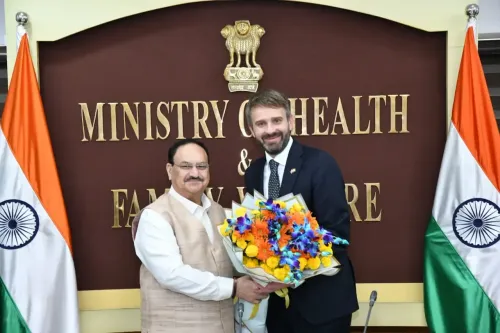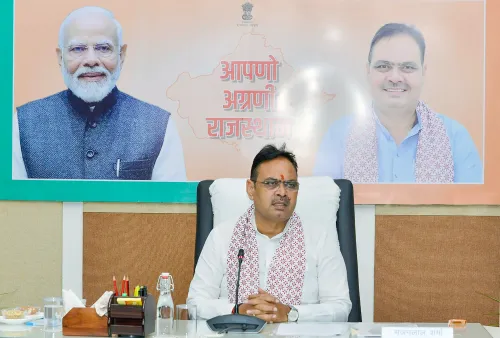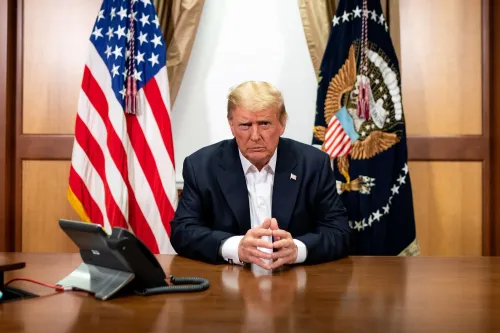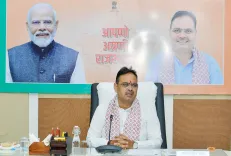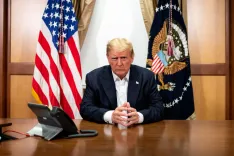Are political leaders like Mehbooba Mufti closing democracy's doors?
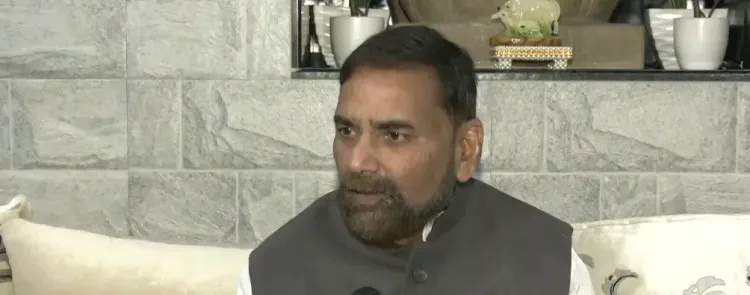
Synopsis
Key Takeaways
- Mehbooba Mufti's critique highlights tensions between regional and national governance.
- Rajeev Ranjan emphasizes accountability in political leadership.
- The political scenario in Bihar is evolving with new cabinet preparations.
- Internal family conflicts in RJD raise questions about political unity.
- Public trust is essential for effective governance and political success.
Patna, Nov 17 (NationPress) Following a pointed critique by PDP leader Mehbooba Mufti against the Centre in light of the recent Delhi car explosion, wherein she claimed that the “issues of Kashmir resonated at the Red Fort,” JD(U) National Spokesperson Rajeev Ranjan remarked that “the doors of democracy are closed for such politicians.”
Mufti had earlier lambasted the Centre on Sunday after a security crackdown post the November 10 Delhi blast, asserting that New Delhi's strategies have neither fostered peace in Jammu and Kashmir nor provided safety in the national capital. “You assured the world that all is well in Kashmir, yet the issues of Kashmir manifested right at the Red Fort,” she stated.
In a conversation with IANS, Ranjan acknowledged Mufti’s significance in politics, emphasizing that she was not only the Chief Minister of Jammu and Kashmir but also a citizen of India. “It is our collective duty to uphold India’s sovereignty and integrity, which even Mehbooba Mufti cannot overlook. The anti-national activities occurring and the criticism surrounding them indicate that, in many respects, people are shutting the doors of democracy for such politicians,” he opined.
Ranjan also addressed the ongoing efforts for forming a new cabinet in Bihar following the NDA's emphatic win. “The essential processes for the new government’s formation in Bihar are currently in progress,” he stated.
He further commented on the internal rift within RJD chief Lalu Prasad Yadav’s family. Just a day after RJD's disappointing performance in the Bihar Assembly elections, where they secured only 25 seats, Lalu’s daughter, Rohini Acharya, who lives in Singapore, announced her exit from politics and her disassociation from the family.
Ranjan noted, “Such challenges are commonplace in family-driven political entities. However, I must say that Tejashwi Yadav was unable to unify his family nor manage the coalition effectively. These were likely significant factors that contributed to the unyielding public support for the alliance of Nitish Kumar and Prime Minister Narendra Modi over a disjointed family or an uncoordinated coalition.”
He also responded to remarks made by Samajwadi Party leader Akhilesh Prasad Singh, who echoed Rahul Gandhi’s assertion that the recent electoral controversy was not chori (theft) but dacoity (robbery).
Ranjan remarked, “Consider what is unfolding. Even within Lalu’s family, such comments are emerging. Due to the infighting in Congress, Akhilesh Singh and other Congress figures have accused their party of mishandling ticket distributions and not nominating suitable candidates. Nonetheless, this represents a considerable public mandate. Identifying shortcomings and resolving them is their duty. Our obligation is to realize the promises we made to the public, and we will do so with integrity.”

